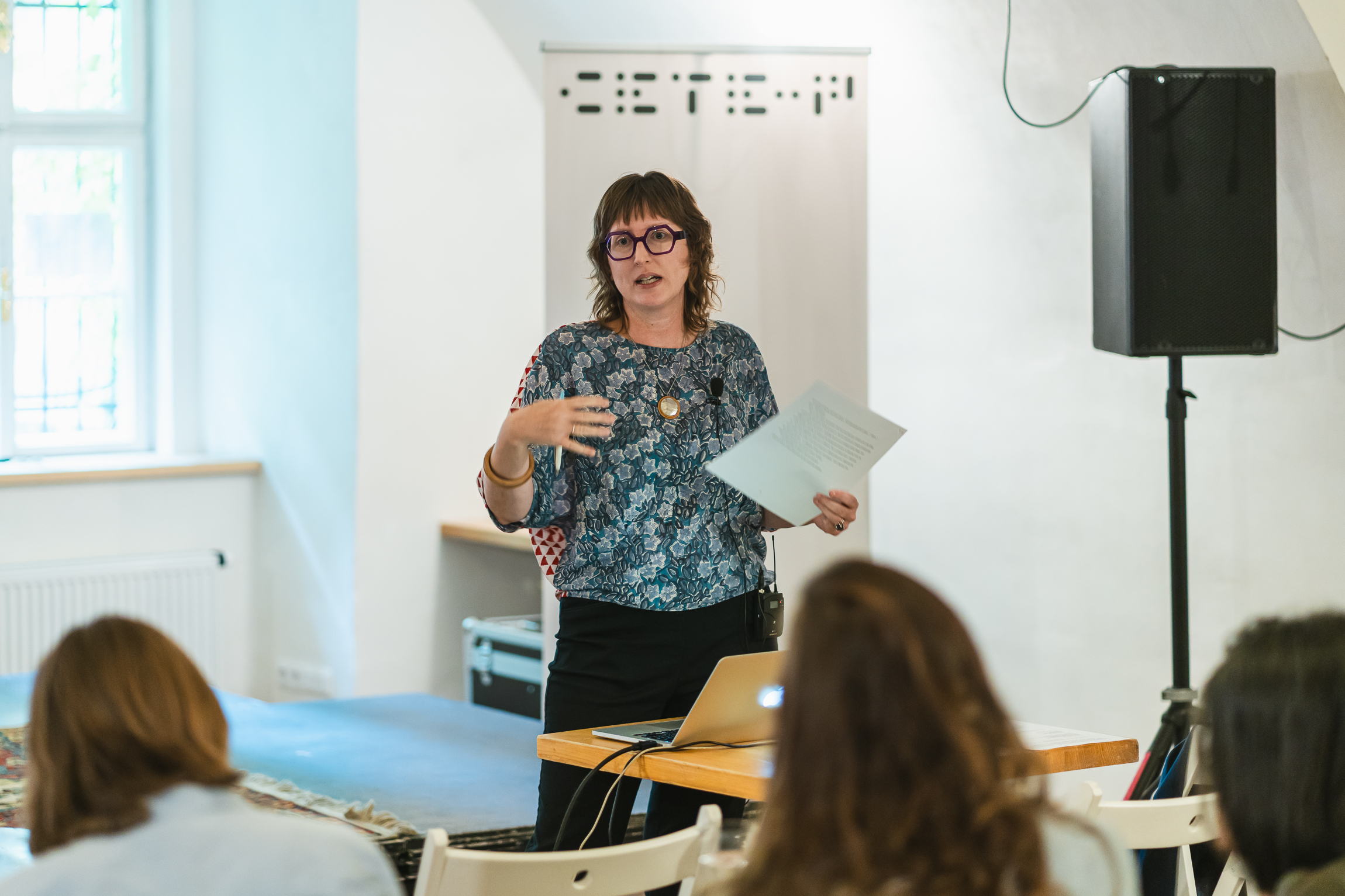
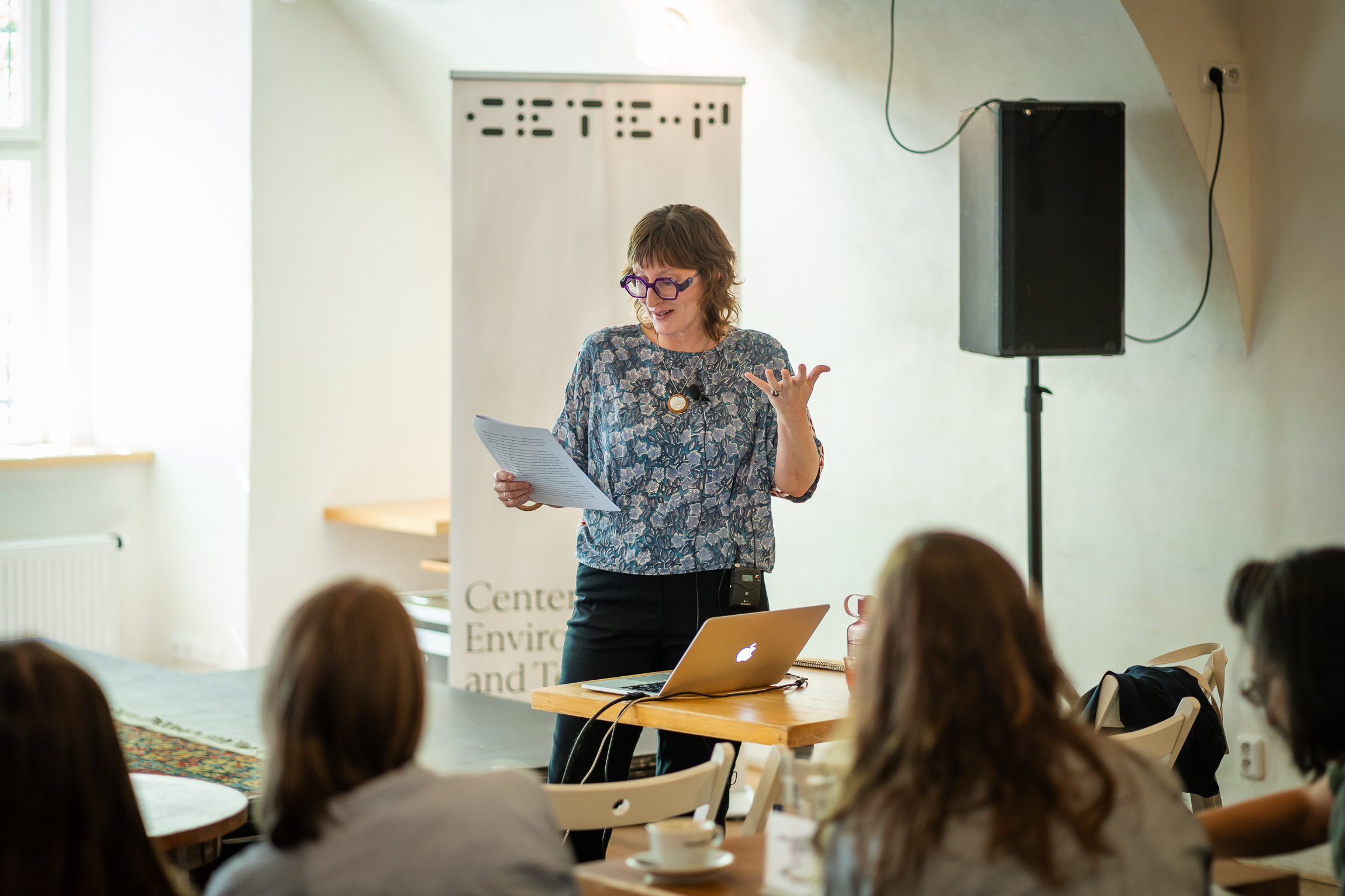

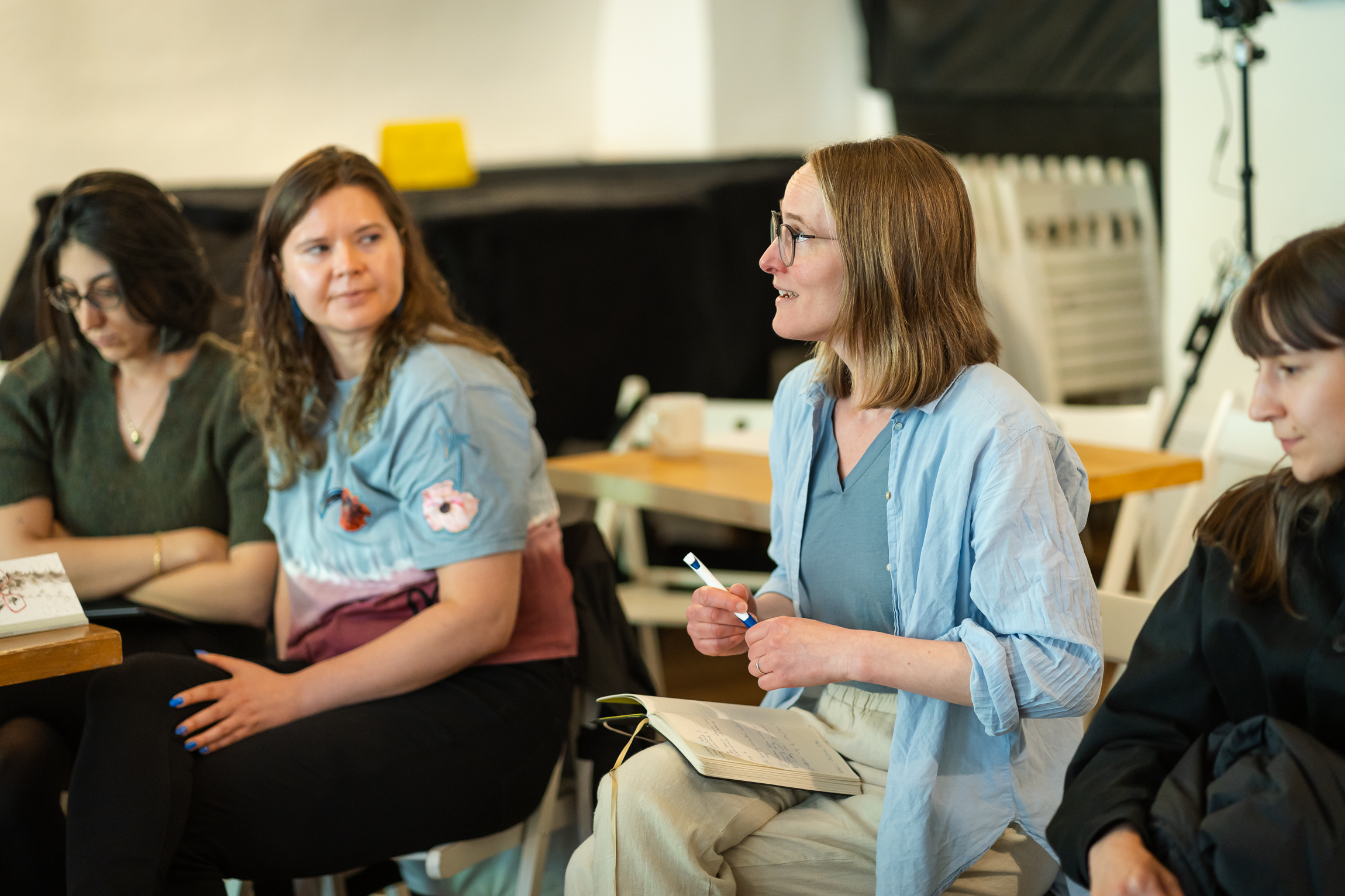
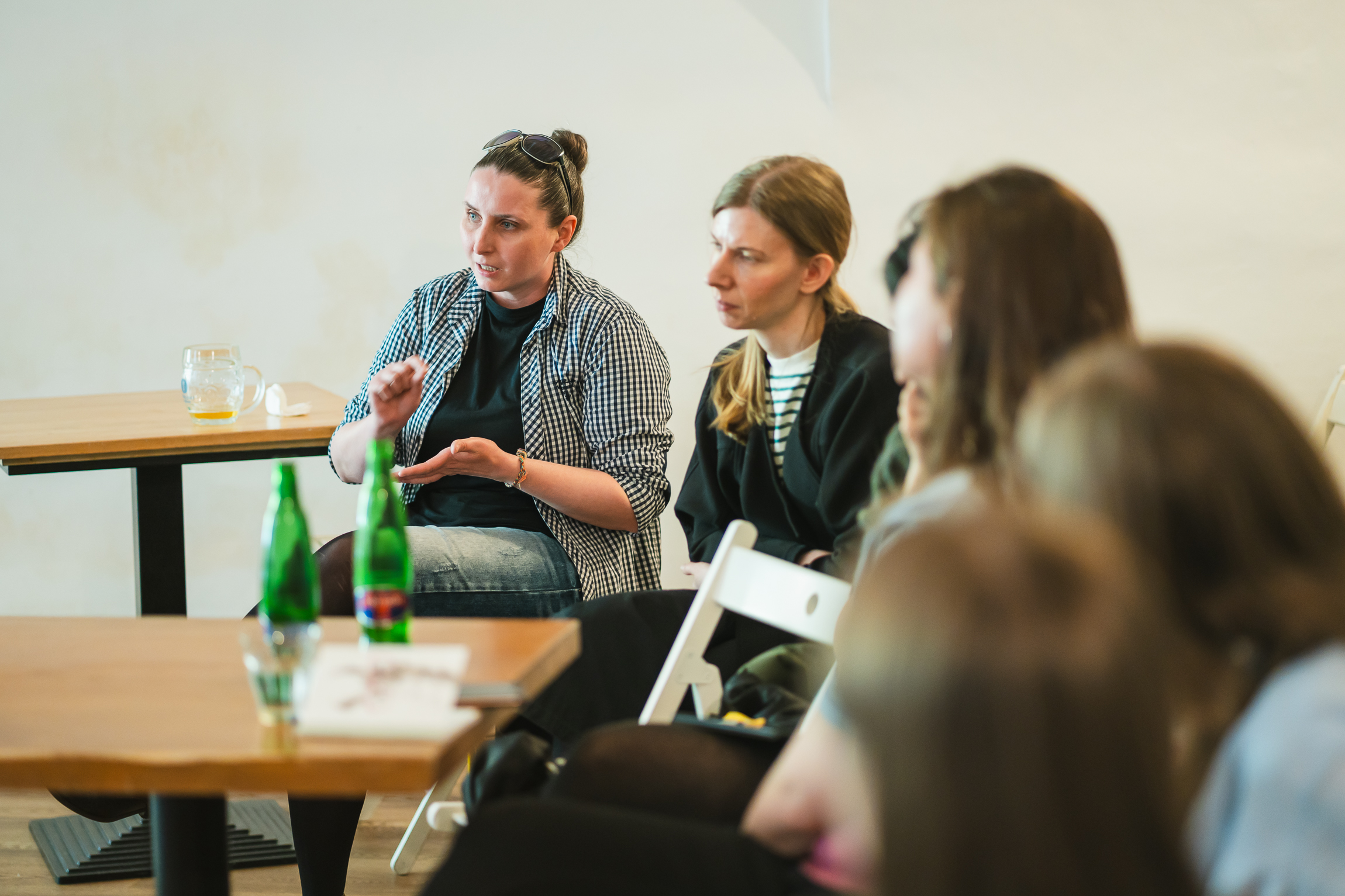
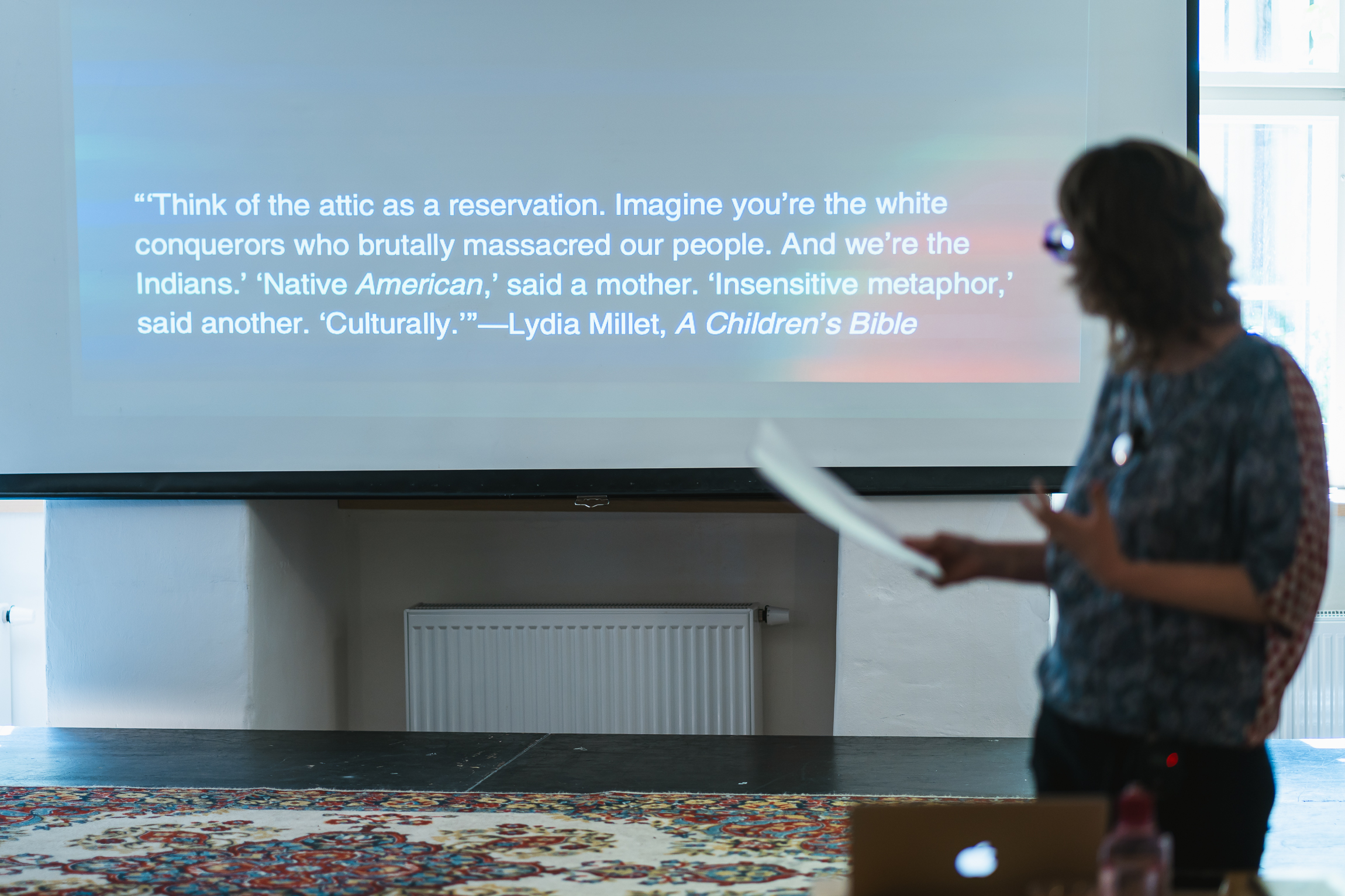
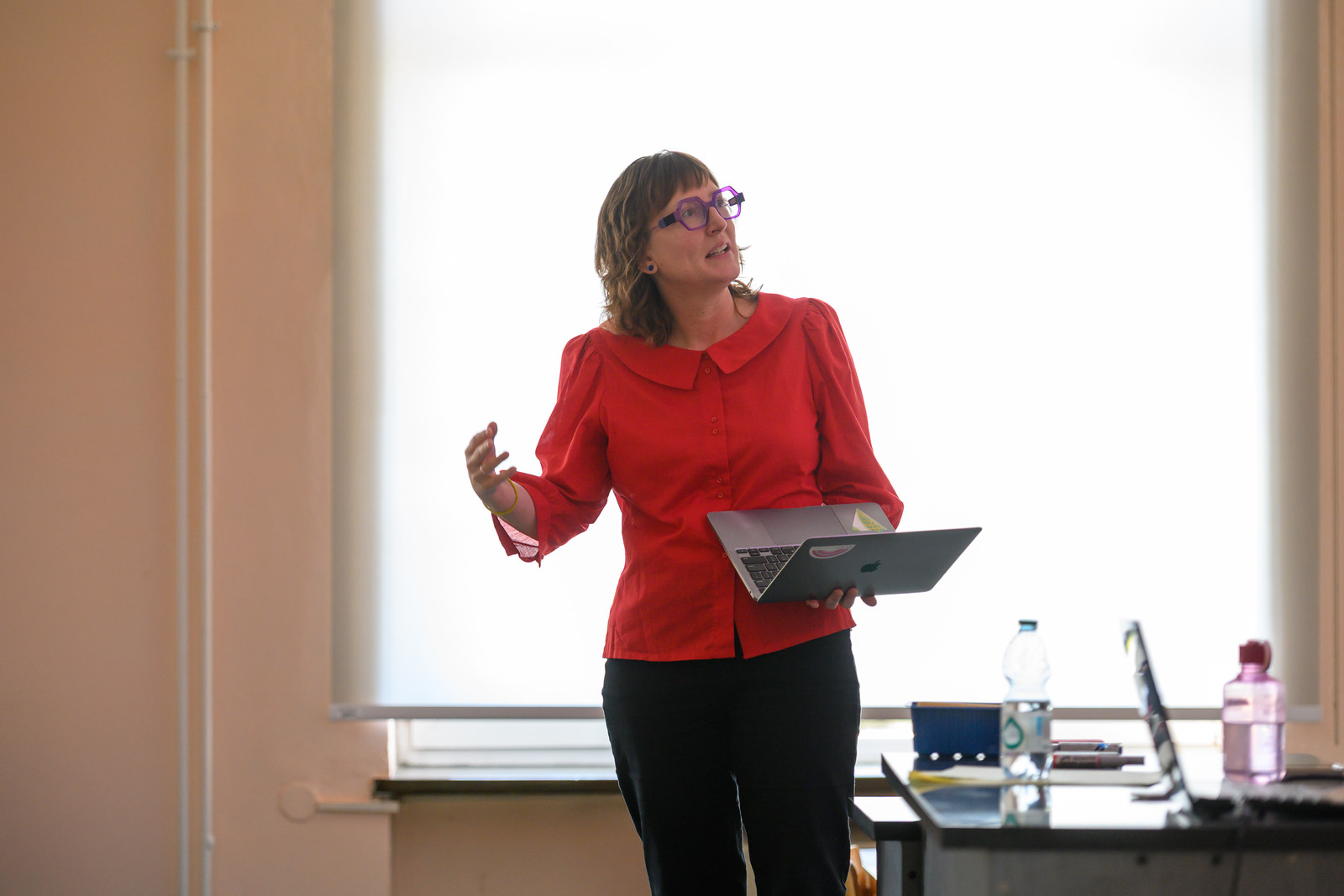
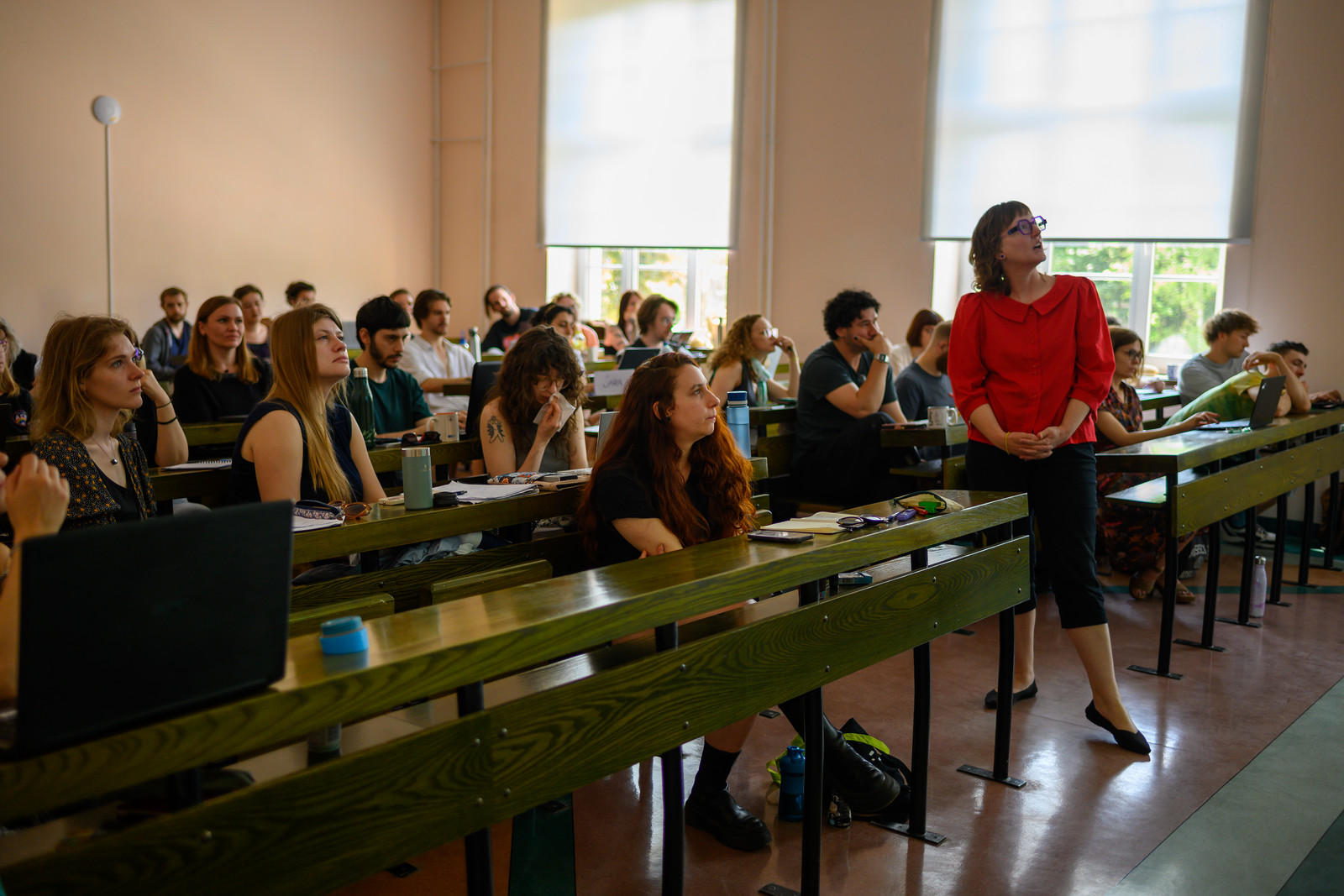
From 29 May until 7 June 2025, CETE-P had the pleasure of hosting Nicole Seymour as Visiting Scholar. Nicole is Professor of English Literature at California State University, Fullerton (USA) and works in the environmental humanities, focusing specifically on the relation between ecology, queerness, affect, literature, and other cultural forms. Her first book Strange Natures (2013) won the 2015 scholarly book award from the Association for the Study of Literature and Environment (ASLE). She is also the author of Bad Environmentalism (2018, University of Minnesota Press) and Glitter (2022, Bloomsbury).
During her stay at CETE-P, Nicole gave a public lecture for a broader audience at Café Husovka entitled ‘Comedy as White Immunity in U.S. Climate Fiction’ (29 May 2025). In her talk, she argued that in many cli-fi novels characters frequently make jokes to stave off their anxiety around climate change. What is more, these novels often invoke, only to absent or appropriate, Indigenous experiences and traditions. Even though climate change presents an opportunity to grapple with an ongoing history of settler colonialism, Nicole argued that comedy often functions in cli-fi novels as a conceptual prophylactic, allowing both white characters and white writers to imagine future adaptions that do not require a processing of the past. This allows them to evade responsibility for social injustices.
While at CETE-P, Nicole also taught a master class at the Visegrad Environmental Philosophy Summer School (VEPSS) which took place from 1 June until 7 June 2025 at the University of Wrocław, Poland. Nicole taught a three-part seminar entitled ‘High and Dry: Climate Fictions of Flooding and Draught’ where she focused on water as a motif in contemporary Anglophone climate change fiction.
Here you can watch Nicole’s lecture ‘Comedy as White Immunity in U.S. Climate Fiction’.
The VEPSS was supported by the Erasmus+ Blended Intensive Programme (BIP) and co-financed by the governments of Czechia, Hungary, Poland, and Slovakia through the International Visegrad Fund, which aims to foster sustainable regional cooperation in Central Europe.
Photo credits: (for Prague lecture) Romana Kovacs and (for VEPSS) Benjamin Slater Hale
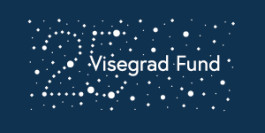






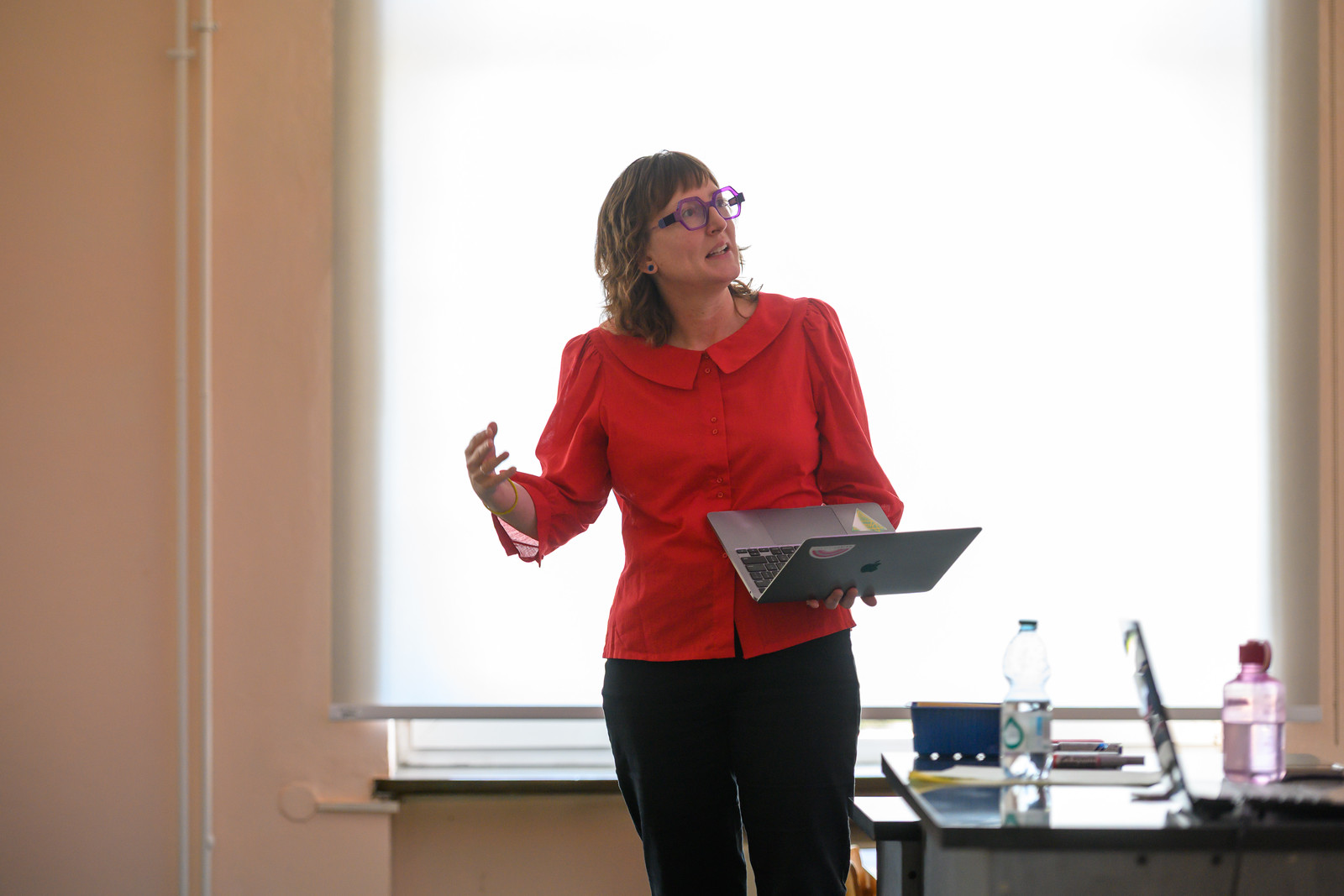
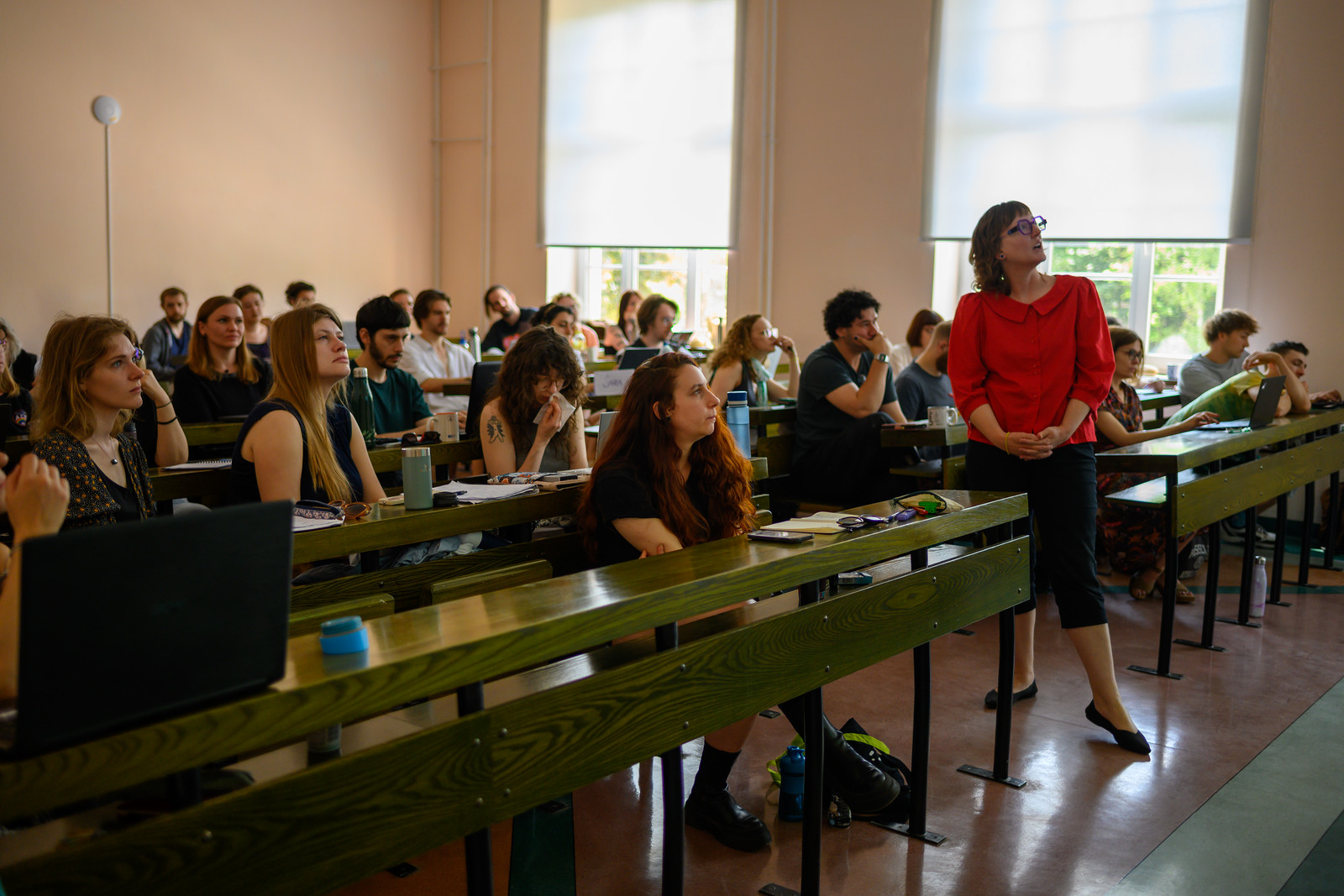
From 29 May until 7 June 2025, CETE-P had the pleasure of hosting Nicole Seymour as Visiting Scholar. Nicole is Professor of English Literature at California State University, Fullerton (USA) and works in the environmental humanities, focusing specifically on the relation between ecology, queerness, affect, literature, and other cultural forms. Her first book Strange Natures (2013) won the 2015 scholarly book award from the Association for the Study of Literature and Environment (ASLE). She is also the author of Bad Environmentalism (2018, University of Minnesota Press) and Glitter (2022, Bloomsbury).
During her stay at CETE-P, Nicole gave a public lecture for a broader audience at Café Husovka entitled ‘Comedy as White Immunity in U.S. Climate Fiction’ (29 May 2025). In her talk, she argued that in many cli-fi novels characters frequently make jokes to stave off their anxiety around climate change. What is more, these novels often invoke, only to absent or appropriate, Indigenous experiences and traditions. Even though climate change presents an opportunity to grapple with an ongoing history of settler colonialism, Nicole argued that comedy often functions in cli-fi novels as a conceptual prophylactic, allowing both white characters and white writers to imagine future adaptions that do not require a processing of the past. This allows them to evade responsibility for social injustices.
While at CETE-P, Nicole also taught a master class at the Visegrad Environmental Philosophy Summer School (VEPSS) which took place from 1 June until 7 June 2025 at the University of Wrocław, Poland. Nicole taught a three-part seminar entitled ‘High and Dry: Climate Fictions of Flooding and Draught’ where she focused on water as a motif in contemporary Anglophone climate change fiction.
Here you can watch Nicole’s lecture ‘Comedy as White Immunity in U.S. Climate Fiction’.
The VEPSS was supported by the Erasmus+ Blended Intensive Programme (BIP) and co-financed by the governments of Czechia, Hungary, Poland, and Slovakia through the International Visegrad Fund, which aims to foster sustainable regional cooperation in Central Europe.
Photo credits: (for Prague lecture) Romana Kovacs and (for VEPSS) Benjamin Slater Hale

•• All News
Celetná 988/38
Prague 1
Czech Republic
This project receives funding from the Horizon EU Framework Programme under Grant Agreement No. 101086898.